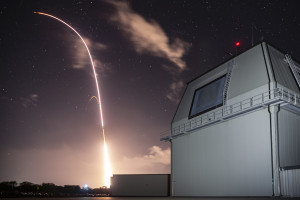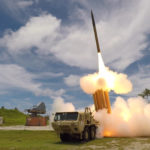
The House Armed Services Committee approved an amendment to the FY ’20 defense authorization bill that reinstates a planned Standard Missile (SM)-3 Block IIA intercept test. While the FY ’18 National Defense Authorization Act (NDAA) required a test of the SM-3 IIA against an ICBM-range target by December 2020, the chairman’s mark included a provision that restricted the test occur only after the SM-3 IIA finishes “operationally realistic testing” against medium and intermediate-range threats. The language underscored these are the…

 By
By 











